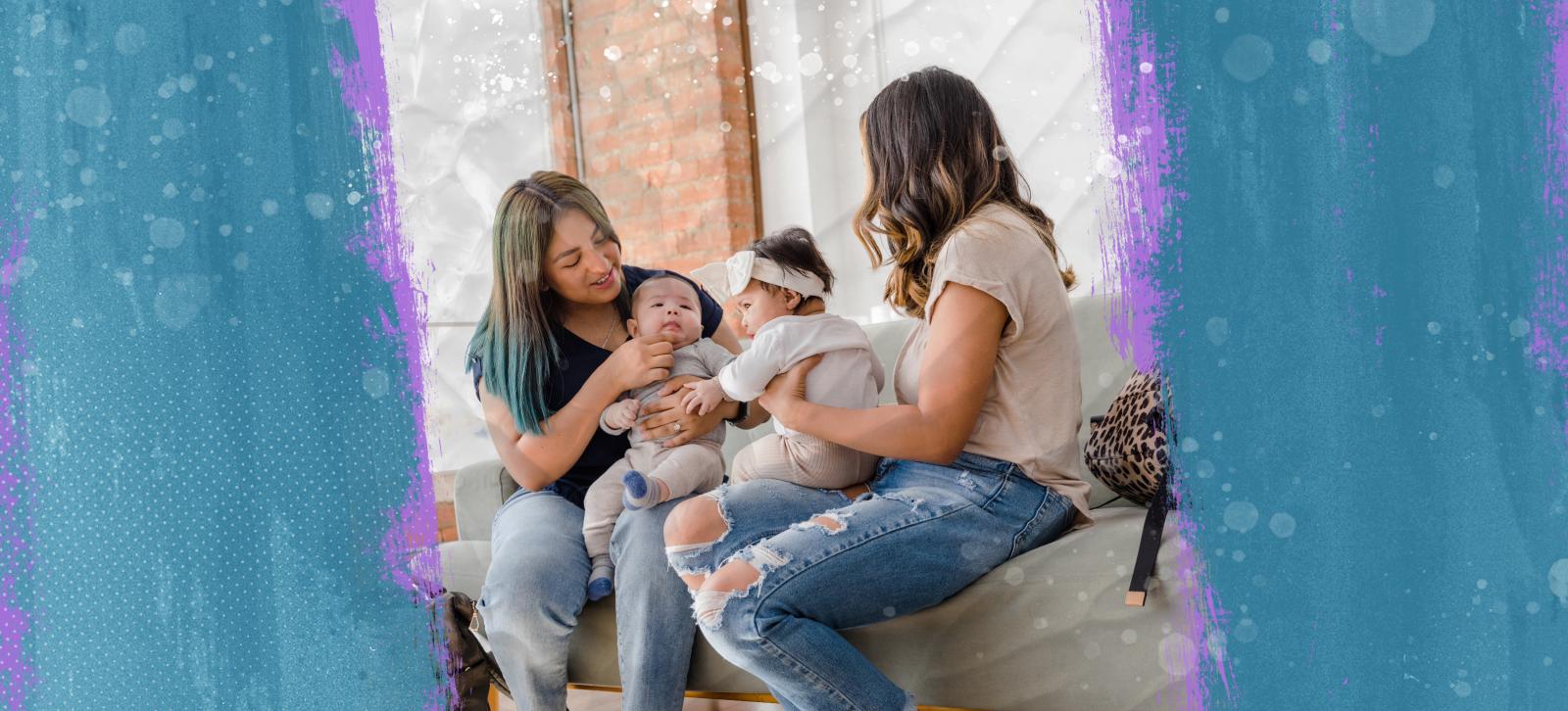Pregnancy is often a time of profound change and anticipation. It can bring with it feelings of hope, excitement, and the promise of new beginnings. However, it can also come with feelings of fear, worry, or judgment, especially if you are struggling with substance use. If you’re facing pregnancy and substance use, you’re not alone. You may feel overwhelmed and unsure of your next steps. But there is hope, and help, connection, support, and treatment available.
Fear and Stigma
Feeling judged, criticized, or like there is nowhere to turn can be really hard and lonely. Fear and stigma often stop people from receiving help while pregnant. People don’t like to go to places where they don’t feel welcome. It’s important to know that there are caring places where you can find the support you need. Even having one nonjudgemental and trustworthy person to support you can make all the difference.
In California, pregnant women who seek help for substance use generally do not face legal consequences simply for seeking treatment. It is not mandatory to report pregnant or parenting clients’ substance use to child welfare or law enforcement agencies. The state’s approach focuses on providing support and resources to ensure the health and well-being of both the mother and the baby.
It can be difficult to decide when and if you want to tell a healthcare provider about your substance use. If they don’t know about it, they won’t connect you to resources that may be helpful — and they may find out anyway. Because of this, it’s easier to tell them about your history of substance use upfront.
Finding Connection and Support
While many people are able to cut back on their use during pregnancy, those who want to stop but can’t stop need support. Acknowledging the need for help is the first, and often the hardest, step. Although you may be afraid or unsure of where to start, taking small manageable steps can be a practical way to begin. For example, if reaching out to a healthcare provider feels overwhelming, you could start by researching local clinics online or asking a friend or family member for recommendations. This may help you feel more prepared and less intimidated when you’re ready to make that first appointment. From there, you can gradually explore other resources like support groups or counseling services, taking each step at a pace that feels comfortable to you.
1. Healthcare Providers
Regular prenatal care is an important part of your pregnancy journey, helping you to have a healthy pregnancy. As part of that care, you can talk to your healthcare provider about substance use. Although it can feel intimidating, it’s an important step in getting you and your baby help. Remember, your healthcare provider is there to support you, not judge you. They can offer a safe space to discuss your substance use history, provide medical advice tailored to you, and connect you with resources. There are no legal ramifications for seeking substance use help while pregnant in the state of California. If you feel you are not getting the care and support you need from your current provider, advocate for an alternative provider.
2. Your Support Networks
Reaching out to your family, friends, and community groups during pregnancy is really important. These people can offer emotional support, help with everyday tasks, and ease your stress. They can keep you motivated and accountable by cheering you on and helping you stick to your goals. Plus, they may be able to connect you with helpful resources.
3. Counselors & Support Groups
Seek out therapists who specialize in substance use and maternal mental health. They can help you deal with the ups and downs of pregnancy and substance use. They can also recommend peer support groups. Peer support groups offer the opportunity to connect with other expectant mothers who are facing similar challenges and can provide a sense of community and unity. You may also consider joining a support group like Alcoholics Anonymous, Narcotics Anonymous, Moderation Management, or SMART Recovery.
4. Online Communities
Many online forums and social media groups offer safe spaces for pregnant women struggling with addiction. These platforms can provide emotional support, the opportunity to share personal experiences, and offer practical advice from others who understand your situation.
5. Substance Use Treatment Programs
Some treatment centers have specific programs for pregnant women, offering care that addresses both addiction and prenatal health. These programs often include counseling and support services that are tailored to your needs.
By connecting with some of these support options, you’ll start to build a network that makes navigating pregnancy and substance use a bit easier. They can help you have a healthier and more positive experience for both you and your baby. And remember, reaching out for help is actually a sign of strength. You’re taking important steps towards a better future, and that’s something to be proud of.
Resources
National Maternal Mental Health Hotline
Call or text 1-833-852-6262
24/7, free, confidential hotline for pregnant and new moms.
English and Spanish. Interpreter services are available in 60 languages
The Substance Use and Mental Health Services Administration (SAMHSA)
Call 1-800-662-HELP (4357)
24/7, free, confidential hotline for substance use help.
Postpartum Support International
Call or text “Help” to the PSI Helpline at 1-800-944-4773
The free and confidential hotline is open between 8am – 11pm EST. You can leave a message at any time outside of those hours.
- For online support groups, resources, and more visit postpartum.net
